 Your new post is loading...
 Your new post is loading...
World Class
How to Build a 21st-Century School System
In a world where the kind of things that are easy to teach and test have also become easy to digitise and automate, it will be our imagination, our awareness and our sense of responsibility that will enable us to harness the opportunities of the 21st century to shape the world for the better. Tomorrow’s schools will need to help students think for themselves and join others, with empathy, in work and citizenship. They will need to help students develop a strong sense of right and wrong, and sensitivity to the claims that others make. What will it take for schools to be able to do this? Andreas Schleicher, initiator of the OECD Programme for International Student Assessment (PISA) and an international authority on education policy, has accompanied education leaders in over 70 countries in their efforts to design and implement forward-looking policies and practices.
While improvement in education is far easier to proclaim than achieve, in this book Schleicher examines the many successes from which we can learn. This does not mean copying and pasting solutions from other schools or countries, but rather looking seriously and dispassionately at good practice in our own countries and elsewhere to understand what works in which contexts. Trained in physics, Schleicher offers a unique perspective on education reform: he convincingly argues that it should not necessarily be less of an art, but more of a science. “No one knows more about education around the world than Andreas Schleicher. Full stop. For the first time, he's collected 20 years worth of wisdom in one place. World Class should be required reading for policy makers, education leaders and anyone who wants to know how our schools can adapt for the modern world – and help all kids learn to think for themselves.” – Amanda Ripley, author of The Smartest Kids in the World, a New York Times bestseller “[Schleicher]…grasps all the key issues, and does so through keeping his ear to the ground and by working out solutions jointly with a variety of leaders at all levels of the system, and in diverse societies” – Michael Fullan, Global Leadership Director, New Pedagogies for Deep Learning “Every visionary leader who is serious about improving student learning should add the data-driven World Class: Learn more / En savoir plus / Mehr erfahren: https://www.scoop.it/t/21st-century-learning-and-teaching/?&tag=OECD
Via Gust MEES
The classroom of the future, according to the world’s best teachers
By Global Teacher Prize | March 2nd 2018
In many parts of the world, today’s classrooms are almost unrecognisable compared to those of a decade ago.
Technology is changing the way students learn and teachers teach. From interactive white boards replacing chalk boards to tablets replacing desktop computers, schools are becoming increasingly digital.
Looking ahead to 2030, greater internet connectivity and smarter technologies promise to radically reshape the classroom of the future.
We asked the Global Teacher Prize 2018 Finalists to share their views on how they feel the classroom will change in the coming decade, and what this means for the role of the teacher.
What do you think will be the biggest difference between the classroom of 2030 and the classroom of today?
Many of our Finalists predict that the trend of young people effectively teaching themselves will continue. Learn more / En savoir plus / Mehr erfahren: https://www.scoop.it/t/21st-century-learning-and-teaching/
Via Gust MEES, R.Conrath, Ed.D.
There is growing recognition in the education systems around the globe that being able to problem-solve computationally—that is, to think logically and algorithmically, and use computational tools for creating artifacts including models and data visualizations—is rapidly becoming a prerequisite competency for all fields.
In 2012, the U.K. national curriculum began introducing computer science (CS) to all students. Singapore, as part of its “Smart Nation” initiative, has labeled developing CT as a “national capability.” Other countries, from Finland to South Korea, China to Australia and New Zealand, have launched large-scale efforts to introduce CT in schools, as either a part of new CS curricula or integrated into existing subjects. Here in the U.S., former President Barack Obama called on all K-12 students to be equipped with CT skills as part of an “Computer Science for All” initiative in 2016. Most emergent efforts in the US involving CT are currently part of CS curricula, although CT is increasingly seeing integration into STEM (especially science) learning. Learn more / En savoir plus / Mehr erfahren: https://www.scoop.it/t/21st-century-learning-and-teaching/?&tag=Computational+Thinking
Via Gust MEES
Est-ce que votre développement professionnel est efficace ?
January 12, 2018
Un développement professionnel soutenu et mobilisateur
•-Est-ce qu’il combine les besoins des personnes et ceux de l’unité éducative ?
•-Est-ce qu’il engage les enseignants et l’équipe de direction ?
•-Est-ce qu’il prend en compte les besoins d’apprentissage des élèves en fonction des classes et des niveaux de scolarité ?
•-Est-ce qu’il est approprié aux différents types d’enseignement et à une dynamique d’innovation ou d’expérimentation ?
•-Est-ce qu’il est adapté à l’apprentissage personnalisé des élèves ?
•-Est-ce qu’il intègre les propositions des enseignants et leur permet de faire des choix ? Learn more / En savoir plus / Mehr erfahren: https://gustmees.wordpress.com/?s=professional
Via Gust MEES, Mark E. Deschaine, PhD
In her early teaching years, Wanny Hersey learned how hands-on projects—which would eventually become known as “making”— could engage and motivate her English students like nothing she’d seen before. She’d witnessed the heartbreak of watching a one-size-fits-all education system fail to engage students who needed it most. And the joy of nurturing students’ natural desire to solve problems and create. Design thinking gives purpose to making. It's a problem-solving, action-oriented, human-centered process that we engage in to assist our students in their journeys as makers. These experiences as a teacher and administrator inspired her to found Bullis Charter school—with both her past and future students in mind. The award winning K-8 public school is focused on design thinking, making, and project-based learning—all of which Wanny believes engage children, and grow their natural curiosity. Wanny spoke to EdSurge about how making builds empathy, why it’s important to compensate teachers for continuously learning, and her advice for administrators who want to drive change through design thinking. Learn more / En savoir plus / Mehr erfahren: http://www.scoop.it/t/21st-century-learning-and-teaching/?&tag=Design-Thinking https://gustmees.wordpress.com/2014/10/03/design-the-learning-of-your-learners-students-ideas/
Via Gust MEES
Exponential technologies have a tendency to move from a deceptively slow pace of development to a disruptively fast pace. We often disregard or don’t notice technologies in the deceptive growth phase, until they begin changing the way we live and do business. Driven by information technologies, products and services become digitized, dematerialized, demonetized and/or democratized and enter a phase of exponential growth. Nicole Wilson, who was Singularity University’s vice president of faculty and curriculum until last year, believes education technology is currently in a phase of deceptive growth, and we are seeing the beginning of how exponential technologies are impacting 1) what we need to learn, 2) how we view schooling and society and 3) how we will teach and learn in the future. [Gust MEES] Simply put, as WE (#Schools) DON'T know WHAT THAT world would be, WE SHOULD prepare the #students #LEARNers for <===> #LEARNing2LEARN to become #LifeLongLEARNing persons! Please check my #blog post <===> https://gustmees.wordpress.com/.../teaching-was.../ <===> #ModernEDU #Coaching
Via Gust MEES
Yet, note that I don’t write articles to get the approval of a teacher or another person. I write and share because I am compelled to do so. I consider it a personal calling to stretch myself and others to consider the challenges and opportunities of life and learning in a connected and digital age. I write the article whether ten people read it or ten thousand people read it. As I often draw from the wisdom of Isaac Asimov to point out, Writing is just thinking with my fingers.” I write to think and to share those thoughts with others. I believe that ideas matter and that, too often today, we turn our ideas into propaganda by only making them visible in their finished and polished formats. I want people to see my ideas in their naked or raw format as well. They are ideas without the lipstick, without being dressed to impress. Learn more / En savoir plus / Mehr erfahren: http://www.scoop.it/t/21st-century-learning-and-teaching/?tag=listening https://gustmees.wordpress.com/2016/09/22/blogs-tips-and-tricks/
Via Gust MEES
I hope you find the Brain Hacking infographic above useful. You can access the other Brain-Based Learning infographics I created by scrolling down my ED!Blog. Please share it with other educators, parents, and learners. I will feature additional Brain-Based Learning Infographics in my future NEWSLETTERS, so please SIGN UP if you would like to receive more tips and strategies that work in helping students become better learners.
If you find the information in the infographic useful, consider buying "Crush School: Every Student's Guide To Killing It In The Classroom", which is a book I wrote to help students learn more efficiently and effectively using proven research based strategies.
Via Gust MEES, Edumorfosis
The Rigor Relevance Framework®
The Rigor/Relevance Framework is a tool developed by the International Center to examine curriculum, instruction, and assessment along the two dimensions of higher standards and student achievement. It can be used in the development of both instruction and assessment. In addition, teachers can use it to monitor their own progress in adding rigor and relevance to their instruction, and to select appropriate instructional strategies for differentiating instruction and facilitating higher achievement goals.
The Knowledge Taxonomy (y-axis) is a continuum based on the six levels of Bloom's Taxonomy, which describes the increasingly complex ways in which we think. The low end involves acquiring knowledge and being able to recall or locate that knowledge. The high end labels the more complex ways in which individuals use knowledge, such as taking several pieces of knowledge and combining them in both logical and creative ways. Learn more / En savoir plus / Mehr erfahren: http://www.scoop.it/t/21st-century-learning-and-teaching/?tag=Rigor
Via Gust MEES
Critical Thinking
As an organization, critical thinking is at the core of what we do, from essays and lists to models and teacher training. (You can check out What It Means To Think Critically for a wordier survey of the intent of critical thinking.)
For this post, we’ve gathered various critical thinking resources. As you’ll notice, conversation is a fundamental part of critical thinking, if for no other reason than the ability to identify a line of reasoning, analyze, evaluate, and respond to it accurately and thoughtfully is among the most common opportunities for critical thinking for students in every day life. Who is saying what? What’s valid and what’s not? How should I respond?
This collection includes resources for teaching critical thinking, from books and videos to graphics and models, rubrics and taxonomies to presentations and debate communities. Take a look, and let us know in the comments which you found the most–or least–useful. Learn more / En savoir plus / Mehr erfahren: http://www.scoop.it/t/21st-century-learning-and-teaching?tag=Critical-Thinking
Via Gust MEES
|
What does this guidance cover?
This guidance report is relevant to the teaching of all students, within any subject area. Most of the examples included are from Key Stages 1 to 4, where the research is strongest. It introduces a simplified framework for self-regulated learning and metacognition.
In due course, we will publish a more detailed research review exploring the subject in more depth; this is an area of academic discussion that may be of interest to some teachers. Here, however, we have simplified the frameworks to allow for ease of understanding and use in real-world settings—we focus on what the evidence says about what teachers can do to develop these skills. Often the research evidence is generic and hard to interpret; by giving specific examples we have tried to bring the work alive for teachers (but this means they are less directly supported by strong evidence).
This guidance draws on a review of the evidence about self-regulated learning and metacognition led by Professor Daniel Muijs and Dr Christian Bokhove (University of Southampton). It is not a new study in itself, but rather is intended as an accessible overview of existing research with clear, actionable guidance. More information about the review and the process is at the end of the review. Some key references are included here; for those wishing to explore the subject in more depth, the forthcoming report will contain a more comprehensive reference section.
Learn more / En savoir plus / Mehr erfahren: https://www.scoop.it/t/21st-century-learning-and-teaching/?&tag=Metacognition
Via Gust MEES
Formal knowledge representation (KR) is about building models of the world, of a particular domain or a problem, which allow for automatic reasoning and interpretation. Such formal models are called ontologies and can be used to provide formal semantics (i.e., machine-interpretable meaning) to any sort of information: databases, catalogs, documents, web pages, etc. The association of information with such formal models makes the information much amenable to machine processing and interpretation.
Cit. Atanas Kiryakov. In Semantic Web Technologies: Trends and Research in Ontology-based Systems; John Davies (Editor), Rudi Studer (Co-Editor), Paul Warren (Co-Editor). pp. 115-138 John Wiley & Sons, Europe. Learn more / En savoir plus / Mehr erfahren: https://www.scoop.it/t/21st-century-learning-and-teaching/?&tag=Ontology
Via Gust MEES
Flipping the curriculum could help us meet the demands of the artificial-intelligence era
Technologies such as artificial intelligence, robotics, and biotech are redefining what it means to be human—and employable.
Jobs are disappearing as automation replaces the need for people. New occupations are emerging that demand competencies that can transfer across the multiple assignments workers will experience in their lives. The disappearance of global boundaries presents opportunities—and risks—for all workers.
These changes demand a significant, ambitious evolution in how we prepare students for their future in a world that's increasingly volatile, uncertain, complex, and ambiguous. We need a relevant and modernized education. Learn more / En savoir plus / Mehr erfahren: https://www.scoop.it/t/21st-century-learning-and-teaching/?&tag=modern-education
Via Gust MEES, José Moraga Campos
“The future of education is digital. We live in an increasingly digital world, where technology is a part of our lives in so many ways. Now more than ever, it is crucial that we incorporate digital technology into education. To prepare students for higher education and future jobs, we must ensure that they are familiar with technology. Administrators who want to prepare their K-12 school for the future of education should look at the ways they use technology in the classroom. Schools that are future-ready are those that blend technology with learning seamlessly and include technology in nearly every lesson.”
I just shared my thoughts on the future of education, but what do my peers think? To find out, we decided to produce an expert roundup on the topic of the future of education. We asked 106 education experts to answer one question: “What are your thoughts on the future of education?” In part 1 of this series, we will focus on the future of K-12. Learn more / En savoir plus / Mehr erfahren: https://www.scoop.it/t/21st-century-learning-and-teaching/?&tag=modern-education
Via Gust MEES
Teacher professional learning is of increasing interest as one way to support the increasingly complex skills students need to learn in preparation for further education and work in the 21st century. Sophisticated forms of teaching are needed to develop student competencies such as deep mastery of challenging content, critical thinking, complex problem-solving, effective communication and collaboration, and self-direction. In turn, effective professional development (PD) is needed to help teachers learn and refine the pedagogies required to teach these skills. However, research has shown that many PD initiatives appear ineffective in supporting changes in teacher practices and student learning. Accordingly, we set out to discover the features of effective PD. This paper reviews 35 methodologically rigorous studies that have demonstrated a positive link between teacher professional development, teaching practices, and student outcomes. We identify the features of these approaches and offer rich descriptions of these models to inform those seeking to understand the nature of the initiatives. Learn more / En savoir plus / Mehr erfahren: https://gustmees.wordpress.com/?s=coaching https://gustmees.wordpress.com/?s=professional+development
Via Gust MEES, Rosemary Tyrrell, Ed.D.
— Breaking up and spacing out study time over days or weeks can substantially boost how much of the material students retain, and for longer, compared to lumping everything into a single, nose-to-the-grindstone session.
— Varying the studying environment — by hitting the books in, say, a cafe or garden rather than only hunkering down in the library, or even by listening to different background music — can help reinforce and sharpen the memory of what you learn.
— A 15-minute break to go for a walk or trawl on social media isn’t necessarily wasteful procrastination. Distractions and interruptions can allow for mental “incubation” and flashes of insight — but only if you’ve been working at a problem for a while and get stuck, according to a 2009 research meta-analysis.
— Quizzing oneself on new material, such as by reciting it aloud from memory or trying to tell a friend about it, is a far more powerful way to master information than just re-reading it, according to work by researchers including Henry Roediger III and Jeffrey Karpicke. (Roediger has co-authored his own book, “Make It Stick: The Science of Successful Learning.”)
Learn more / En savoir plus / Mehr erfahren: https://gustmees.wordpress.com/2016/03/14/time-the-most-important-factor-neglected-in-education/ http://www.scoop.it/t/21st-century-learning-and-teaching/?tag=Brain
Via Gust MEES, massimo facchinetti
L'esprit critique est une dynamique. Ce n'est jamais un acquis définitif, et il peut toujours nous arriver d'en manquer, d'être entraîné par nos opinions, par nos préjugés, de laisser de côté des aspects de la réalité qui nous gênent ou nous remettent en question. Le sociologue Max Weber, dans un ouvrage célèbre, Le savant et le politique, écrit : « La tâche primordiale d'un professeur capable est d'apprendre à ses élèves à reconnaître qu'il y a des faits inconfortables, j'entends par là des faits qui sont désagréables à l'opinion personnelle d'un individu ; en effet il existe des faits extrêmement désagréables pour chaque opinion, y compris la mienne » (Max Weber, Le Savant et le politique). On ne peut donc pas se prévaloir purement et simplement de l'esprit critique : on s'efforce d'en avoir, et cela se traduit par des pratiques. C'est à cet effort incessant que l'enseignant initie progressivement ses élèves. Learn more / En savoir plus / Mehr erfahren: http://www.scoop.it/t/21st-century-learning-and-teaching?tag=Critical-Thinking
Via Gust MEES
Think about the jobs in today’s economy — the ones we’re supposed to prepare students for after graduation. Are employees evaluated using bubble-in tests to prove they know the ins and outs of their job? Do they learn and use new skills one at a time in a vacuum? The questions sound a bit silly until you realize too often that’s what students take away from their education. Why is the culture to drill facts into students’ heads just to pass a test?
Just like in the real world, my students show what they can do through projects, teamwork, and research. Is it working? Well, according to state science exams, my students consistently score higher than other science classes in my district.
I’ve never been a big believer in teaching to a test. Indeed, since my first year in the classroom I’ve used a project-based model with my science and social studies classes. On the first day of school I issue my fifth-graders a PASSPORT (which stands for Preparing All Students for Success by Participating in an Ongoing Real-world simulation using Technology) and explain that their yearlong adventure to “Johnsonville” starts today. The school year is a simulation of adulthood where students work, create, and learn about personal finance and entrepreneurial skills. They experience real-world situations and gain insights into global affairs. Students tend to view my classroom less as a “classroom” and more of an interactive city where all projects intertwine to create an ecosystem of businesses and homes. Learn more / En savoir plus / Mehr erfahren: http://www.scoop.it/t/21st-century-learning-and-teaching/?tag=Learning+by+doing http://www.scoop.it/t/21st-century-learning-and-teaching/?tag=PBL
Via Gust MEES
|



 Your new post is loading...
Your new post is loading...

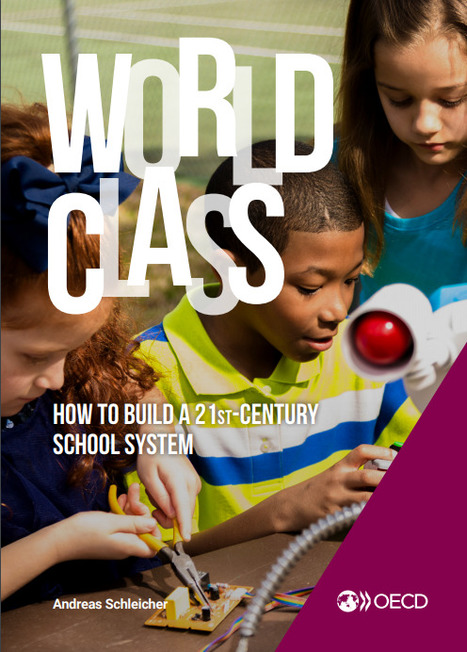

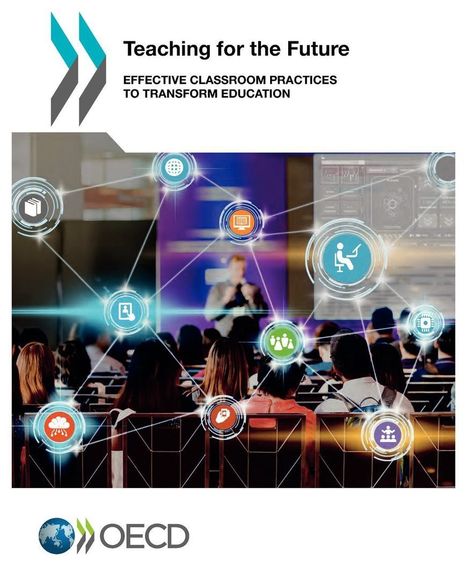


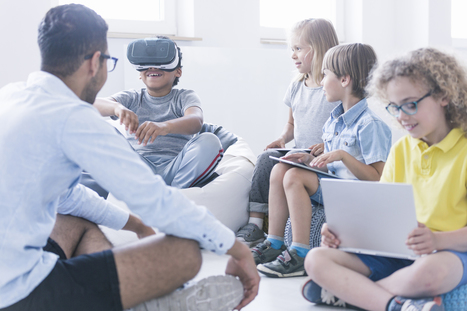





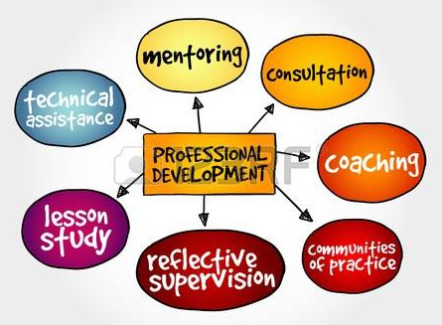

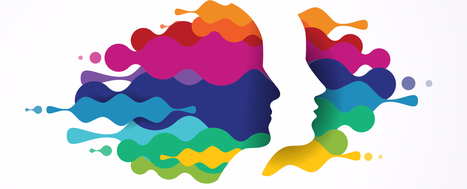



![[Infographic] Why every educator needs to know how the brain learns | E-Learning-Inclusivo (Mashup) | Scoop.it](https://img.scoop.it/gIMRZ7-tl8Fd3EJjeWc8rjl72eJkfbmt4t8yenImKBVvK0kTmF0xjctABnaLJIm9)



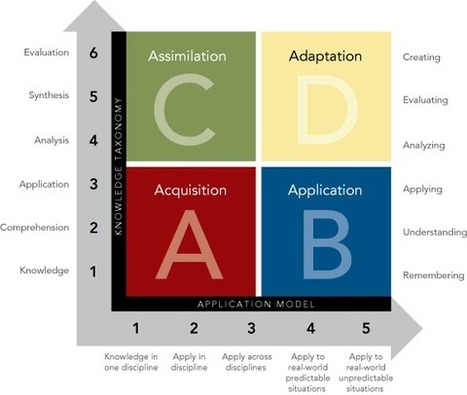
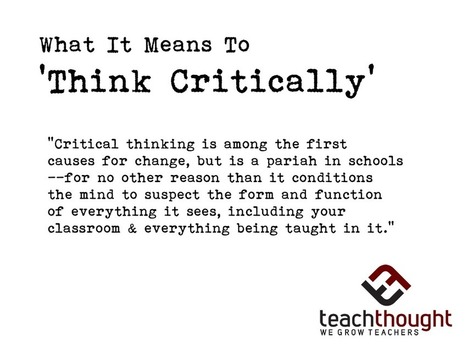

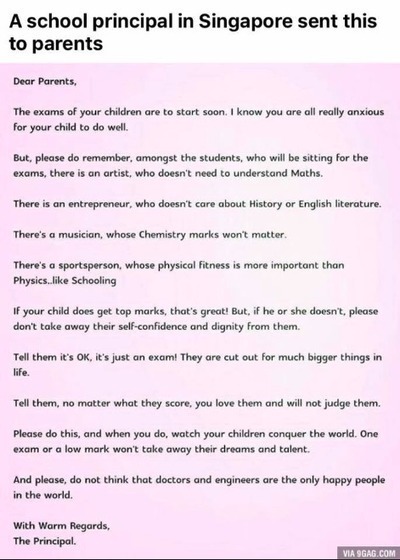
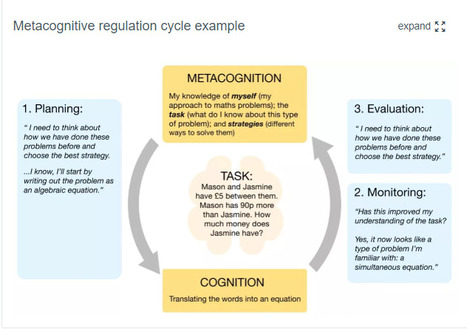
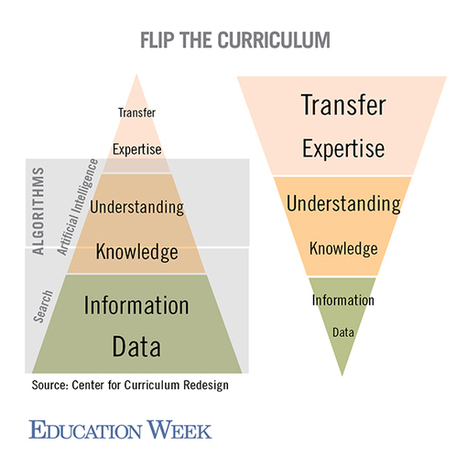

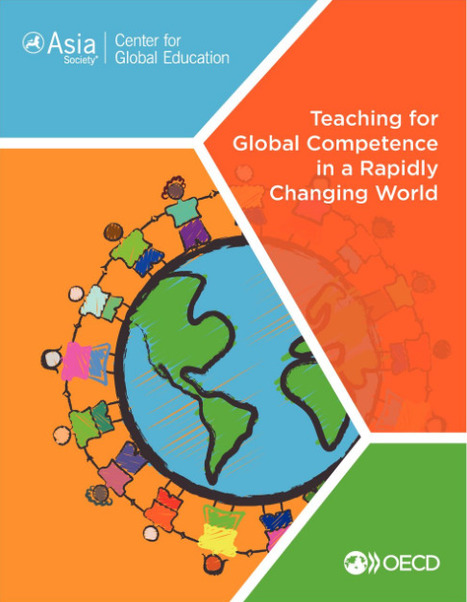
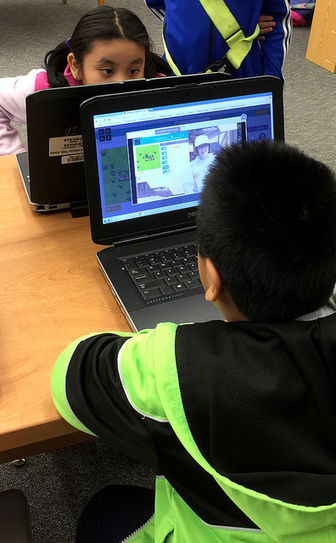


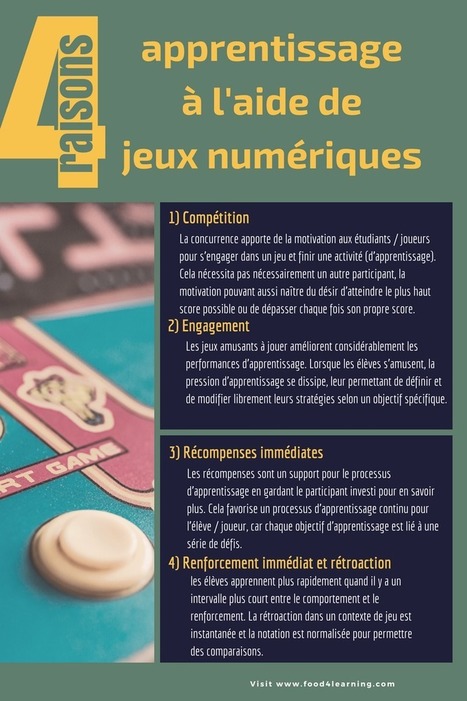
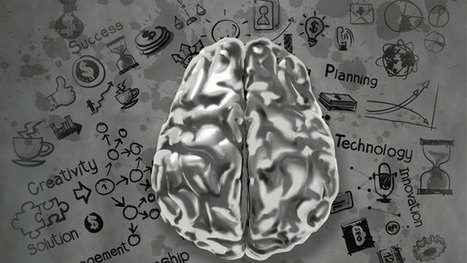

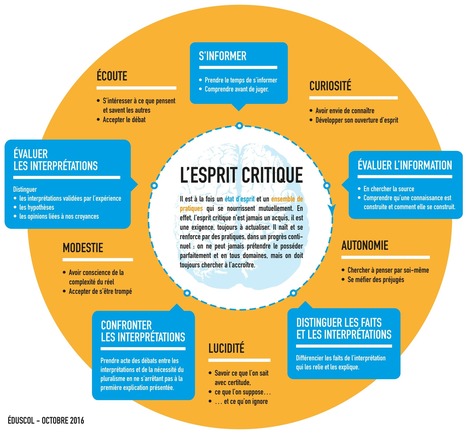
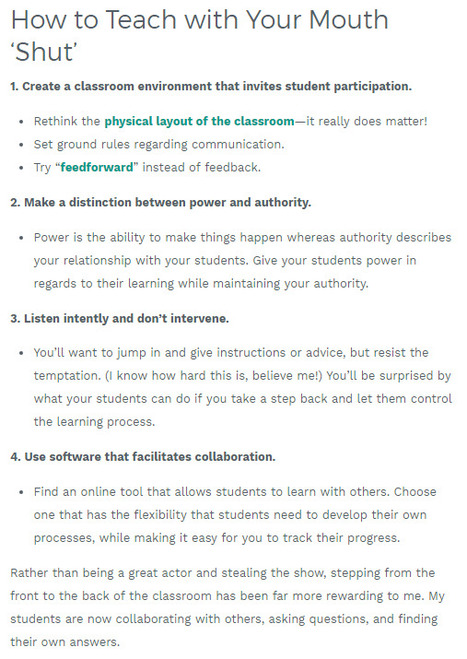

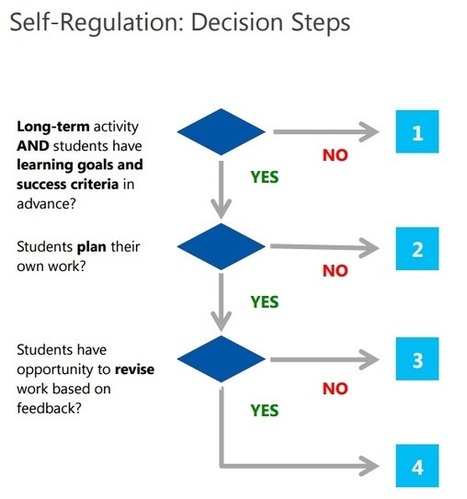






World Class
How to Build a 21st-Century School System
In a world where the kind of things that are easy to teach and test have also become easy to digitise and automate, it will be our imagination, our awareness and our sense of responsibility that will enable us to harness the opportunities of the 21st century to shape the world for the better. Tomorrow’s schools will need to help students think for themselves and join others, with empathy, in work and citizenship. They will need to help students develop a strong sense of right and wrong, and sensitivity to the claims that others make. What will it take for schools to be able to do this? Andreas Schleicher, initiator of the OECD Programme for International Student Assessment (PISA) and an international authority on education policy, has accompanied education leaders in over 70 countries in their efforts to design and implement forward-looking policies and practices.
While improvement in education is far easier to proclaim than achieve, in this book Schleicher examines the many successes from which we can learn. This does not mean copying and pasting solutions from other schools or countries, but rather looking seriously and dispassionately at good practice in our own countries and elsewhere to understand what works in which contexts. Trained in physics, Schleicher offers a unique perspective on education reform: he convincingly argues that it should not necessarily be less of an art, but more of a science. “No one knows more about education around the world than Andreas Schleicher.
Full stop. For the first time, he's collected 20 years worth of wisdom in one place. World Class should be required reading for policy makers, education leaders and anyone who wants to know how our schools can adapt for the modern world – and help all kids learn to think for themselves.” – Amanda Ripley, author of The Smartest Kids in the World, a New York Times bestseller “[Schleicher]…grasps all the key issues, and does so through keeping his ear to the ground and by working out solutions jointly with a variety of leaders at all levels of the system, and in diverse societies” – Michael Fullan, Global Leadership Director, New Pedagogies for Deep Learning “Every visionary leader who is serious about improving student learning should add the data-driven World Class:
Learn more / En savoir plus / Mehr erfahren:
https://www.scoop.it/t/21st-century-learning-and-teaching/?&tag=OECD